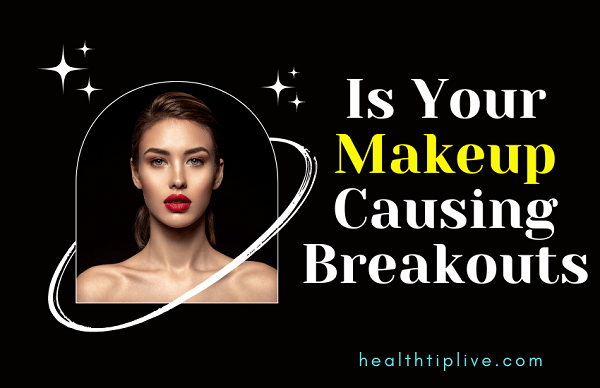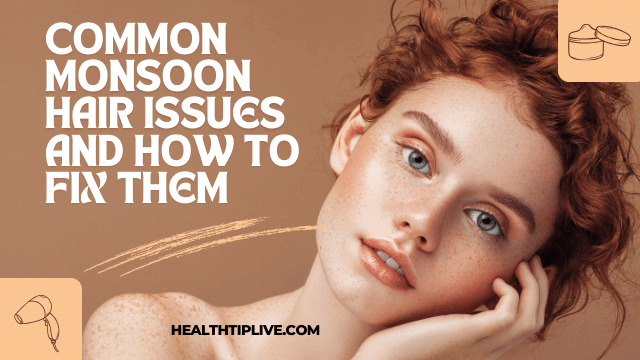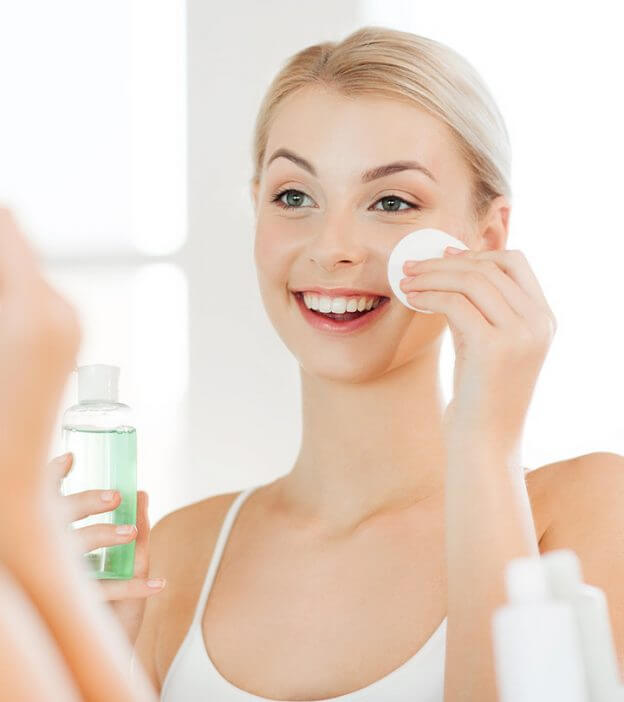Makeup can be your best friend. After all, it has the power to make your blemishes disappear and help you achieve that model-worthy glow. Unfortunately, makeup can also be damaging. If you’re not careful with the products you use, or how you apply makeup, you may start to notice breakouts.
Sound familiar? If you constantly experience pimples after applying makeup, this article is for you. Here’s why your makeup may be causing breakouts, and what you can do to keep your skin clear:
1. You Sleep in Your Makeup
What’s the first thing you want to do when you get home after a long day? Sleep, right? Understandable. Unfortunately, one of the first things you should do is wash the makeup off your face.
Chances are, you know that your skin comes into contact with dirt, bacteria, and other harmful factors during the day. That’s why washing your face at the end of the day is so crucial to keeping your pores from clogging. What you may not realize is that makeup, like dirt and bacteria, can also clog your pores and lead to breakouts.
To keep your skin clear, take the time to wash your makeup off at the end of the day. Make sure you apply a cleanser that’s right for your skin type to ensure you’re getting every trace off. After, go ahead and complete your usual skincare routine, whether that’s applying acne treatment or using a gentle exfoliator.
2. You Aren’t Reading the Labels
One of the biggest mistakes people make with skincare is not reading the labels. While you may want to believe every commercial and advertisement on Instagram, you can’t. The truth is, everyone’s skin is different.
If you’re prone to acne and blemishes, you need to take special care when choosing makeup products. Luckily, there’s an easy hack to picking the right ones. Simply look for the word “non comedogenic.” When products are labeled “noncomedogenic” that means they don’t contain ingredients known to clog pores. Meaning, there’s less risk you’ll experience blemishes when using this makeup.
You should also avoid using makeup with certain acne-triggering ingredients, like parabens. These ingredients are common in makeup and can contribute to breakouts. Parabens stimulate estrogen, which is a hormone that can trigger acne. You should also avoid beauty products with fragrances because they can cause irritation.
3. You Don’t Wash Your Face
A common mistake many people make is applying their makeup before cleansing their face. That’s a big no-no. You want to make sure your face is clean of excess bacteria and dirt before applying makeup. If you don’t, you’re essentially putting makeup on dirty skin, which can cause irritation, clogged pores, and breakouts.
Before applying makeup, make sure you prep your skin by using a cleanser. Then, depending on your preference, consider exfoliating your skin. It’s important to note that this isn’t a crucial second step. If you have sensitive skin, exfoliating may be too harsh. However, if exfoliating is a usual part of your skincare regimen, feel free to keep it.
After you’ve exfoliated, apply a small amount of your toner onto a cotton ball and gently rub it on your face and neck. This is a great way to remove any lingering dirt and oil. Finally, apply a hydrating moisturizer to your skin. Then, go ahead and start applying your makeup products.
4. You Forget To Clean Your Brushes
Is your makeup causing your acne, or is it your brushes? Not many people realize how dirty their makeup brushes and applicators are. According to a UK study, makeup brushes can actually be dirtier than toilets. That’s why cleaning your makeup brushes is so important, and it should be a regular part of your routine.
As a rule of thumb, make time to wash your brushes at least once a week with antibacterial soap or brush cleaner. Instead of pouring soap directly on your brushes, fill a bowl with lukewarm water and add the soap. Then, simply dip and swirl each brush into the bowl. Once you’re done, make sure to dry your brushes by laying them flat on a towel.
Your makeup brushes and applicators are breeding grounds for bacteria. And the last thing you want is to transfer that bacteria to your skin. Cleaning your brushes is a necessary step in helping you maintain clear skin.
5. You Don’t Give Your Skin A Break
While there’s nothing wrong with wearing makeup, it’s a good idea to let your skin breathe every once in a while. This is especially true if you’re the kind of person who wears makeup all day, every day, and you’re experiencing breakouts. That might mean you’re not giving your skin the time it needs to heal itself.
If possible, try to go bare skin at least twice a week. If you’re not comfortable with that idea, at least make sure you aren’t leaving your makeup on all day. That might mean taking the time to wash your face before going to your evening workout session. Or, instead of applying makeup first thing in the morning out of habit, wait until an hour before you leave your house.
Not only can going without makeup help your skin, but it may help improve your self-confidence. It’s important you know that you’re beautiful with or without makeup.
While makeup alone shouldn’t cause acne, the ingredients and how you apply the makeup can wreak havoc on your skin. Luckily, by integrating the tips above you can say goodbye to breakouts and enjoy wearing makeup again.



